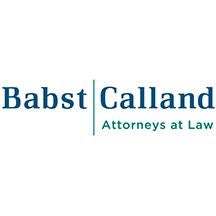On June 30, 2021, Governor Tom Wolf signed Senate Bill 554 into law as Act 65 of 2021 which amended the Pennsylvania Sunshine Act, 65 Pa.C.S. §§701-716, (Sunshine Act) to require that agencies subject to the Act make their meeting agendas available to the public, and set restrictions on taking official action on any item not listed on the agenda as published. These changes took effect on August 30, 2021.
Act 65 amended Section 709 of the Sunshine Act to require that agencies post a copy of the agenda for the meeting, including a listing of each matter of agency business that will be or may be the subject of deliberation or official action on its official website, at the meeting location, and at its principal office no later than 24 hours in advance of the time of the convening of the meeting. In addition, Act 65 added a new Section 712.1 which identified the instances in which official action could be taken on an item not included in the posted agenda. Early interpretations of Section 712.1 indicated that the new subsection (e) could be used to add any item to the agenda so long as it was added by majority vote and the agenda was revised and reposted within 24 hours of the meeting. Schmidt v. Ringgold School District, No. 2022-0128 (Ct. Comm. Pls. Washington Co. Dec. 9, 2022).
However, in a reported decision issued November 8, 2023, the Commonwealth Court, in Coleman v. Parkland School District, No. 1416 C.D. 2022 (Pa. Cmwlth. Nov. 8, 2023) rejected this interpretation and determined that in order for official action to be taken on an item not included on the agenda posted in accordance with Section 709 of the Sunshine Act, the issue must meet one of the three enumerated exceptions identified in Sections 712.1(b),(c) or (d) of the Sunshine Act.
Under Coleman and Section 712.1(a) of the Sunshine Act, 65 P.S. §712.1(a), an agency may not take official action on a matter of agency business if that matter was not included in the posted agenda unless it qualifies as:
712.1(b): a matter that relates to a real or potential emergency involving a clear and present danger to life or property; or
712.1(c): a matter brought to the attention of the agency within the 24-hour period prior to the meeting, provided the matter is de minimis in nature and does not involve the expenditure of funds or entering into any contract or agreement; or
712.1(d): a matter raised by a resident or taxpayer at the meeting to be considered for the purposes of referring it to staff, researching it for inclusion at a later meeting, or for full consideration where it is de minimis and does not involve the expenditure of funds or entering into any contract or agreement.
The Court in Coleman clarified that in order for an agency to add an item to its agenda for official action it must first qualify under Sections 712.1(b), (c) or (d) and then the agency must vote to add the item to the agenda, by majority vote, in accordance with Section 712.1(e) which states:
Upon majority vote of the individuals present and voting during the conduct of a meeting, an agency may add a matter of agency business to the agenda. The reasons for the changes to the agenda shall be announced at the meeting before any vote is conducted to make the changes to the agenda. The agency may subsequently take official action on the matter added to the agenda. The agency shall post the amended agenda on the agency’s publicly accessible Internet website, if available, and at the agency’s principal office location no later than the first business day following the meeting at which the agenda was changed.
Impact and Considerations.
Many agencies have been operating under the interpretation that Section 712.1(e) is a “catch-all” provision allowing any item to be added to an agenda by majority vote, regardless of whether it meets Sections 712.1(b), (c), or (d). Based on the Court’s analysis in Coleman, this practice is now improper and can be considered a violation of the Sunshine Act.
Under Section 713 of the Act, a challenge to any violation must be filed within 30 days from the date of the meeting at which the alleged violation occurred (or 30 days from the date the violation was discovered if the meeting was not open to the public). In no instance can a legal challenge be commenced more than one year from the date of that meeting. Therefore, agencies do not need to cure any defective actions taken at open meetings prior to October 8, 2023. However, agencies should consider ratifying any action taken on an item added by majority vote in the past 30 days by adding the ratification motion to the agenda of their next public meeting.
Any member of an agency who participates in a meeting with the intent and purpose of violating the Sunshine Act may be found to have committed a summary offense and may be sentenced to fines of up to $1,000 for a first offense or $2,000 for a second. In addition, under Section 713, if a court determines that a meeting did not meet the requirements of the Sunshine Act, it may in its discretion find that any or all official action taken at that meeting was invalid. Therefore, it is important that any agency subject to the Act prepare to put in place procedures for posting its agendas in advance of any public meeting, and only take official action on business included in the agenda posted at least 24 hours prior to the meeting unless one of the exceptions above are met.





 />i
/>i

